MEDNEWS 01/2022
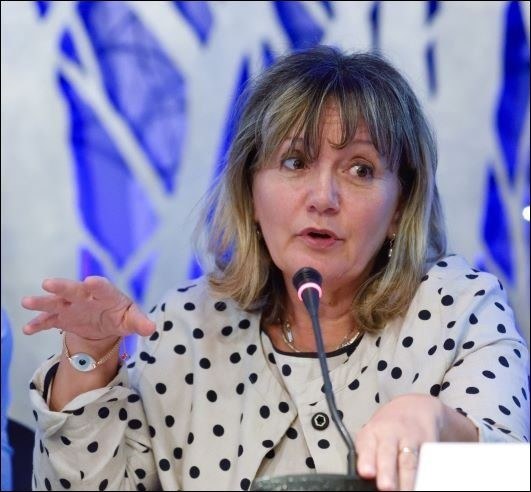 Reflections in the aftermath of a memorable COP of the Barcelona Convention
Reflections in the aftermath of a memorable COP of the Barcelona Convention
By Tatjana Hema, UNEP/MAP Coordinator
It has already been five months since the 22nd Meeting (COP 22) of the Contracting Parties to the Barcelona Convention and its Protocols held in the coastal city of Antalya, Turkey.
This was a monumental “COP for the Mediterranean”: it marked 45 years of constructive and forward-looking regional collaboration and solidarity under the UNEP/MAP-Barcelona Convention system and delivered a package of action-oriented decisions to protect the Mediterranean marine and coastal environment and bolster sustainable development.
I am grateful to our host country, Turkey, and the Contracting Parties’ representatives who made COP 22 happen despite the challenges linked to COVID-19 and, above all, for reaching concrete agreement on key decisions of major importance to MAP and the region. We look forward to the adoption of the Contracting Parties’ decision on the Designation of the Mediterranean Sea, as a whole, as an Emission Control Area for Sulphur Oxides (MED SOx ECA) pursuant to MARPOL Annex VI by the relevant IMO bodies. This represents without any doubt a groundbreaking achievement we should all be proud of. Its implementation is expected to generate significant benefits for human health and for the integrity of ecosystems, which both suffer from harmful SOx emissions from the maritime transport sector, one of the pillars of the blue economy in the Mediterranean.
On biodiversity, COP 22 adopted the Post-2020 Strategic Action Programme for the Conservation of Biodiversity and Sustainable Management of Natural Resources in the Mediterranean Region (Post-2020 SAPBIO). This achievement was complemented with agreement on a Post-2020 Regional Strategy for protecting and conserving the Mediterranean through well connected and effective systems of marine and coastal protected areas and other effective area-based conservation measures. On 20 May 2022 I will attend a high-level regional event co-organized by SPA/RAC and our partners in Monaco to mark the first edition of SPAMI Day (15 April).
Other decisions that were introduced in Antalya take aim at land- and sea-based pollution, including plastic. The Regional Plan on Marine Litter Management was substantively updated to streamline and apply circular economy principles with a focus on plastic and microplastic pollution. By adopting the updated Plan at COP 22, the representatives of 21 Mediterranean countries and the EU had sent an encouraging signal ahead of the resumed session of UNEA 5, which eventually reached a historic resolution regarding the set-up of a global treaty on plastics.
COP 22 also adopted ambitious legally binding measures and timeframes for their implementation to prevent marine pollution from wastewater and sludge generated from the operation of wastewater treatment plants with the ultimate objective to minimize pollution form these sources, achieve good environmental status and enhance the environmental performance of the management of these important sectors in the region.
The Contracting Parties also adopted a set of regional measures to support the development of green businesses and to ratchet up demand for more sustainable products. These measures will, I am sure, trickle down to many sectors of the Mediterranean economies as they pivot towards circularity.
To cap it all, COP 22 adopted the the Medium-Term Strategy (MTS - 2022-2027) that aims to achieve transformational change and contribute to bend current trajectories. The effective implementation of the Strategy will situate our region on a path of sustainability. The Antalya Declaration brings a strong expression of political support to this collective endeavour.
What COP 22 delivered is substantial. Ensuring that decisions are translated into action remains our priority as the proud custodians of the multilateral process that has delivered the Barcelona Convention in 1976 and the unique legal, institutional and implementation framework that the UNEP/MAP-Barcelona Convention system constitutes.
The next few months will see major meetings on the global environment and sustainable development taking place with crucial agendas and much at stake. We at UNEP/MAP are working with our Contracting Parties and partners to ensure an adequate presence for the Mediterranean. This region has so much to offer in terms of achievements and lessons learned but is also capable to absorb best practices from elsewhere
As I told UNEP colleagues in this Q&A on the legacy of the 1972 Conference on the Human Environment, my wish is that the Stockholm+50 conference (to be held on 4-5 June in the Swedish capital) will give new impetus to multilateralism and solidarity, strengthen the implementation of commitments and galvanize multi-stakeholder cooperation to address the triple planetary crisis. We can no longer afford to work in silos or compete for resources. At the national level, we need everyone to contribute, including the private sector which must be at the forefront of the collective endeavor for sustainability and resilience. It is time for implementation on the ground to deliver on commitments.
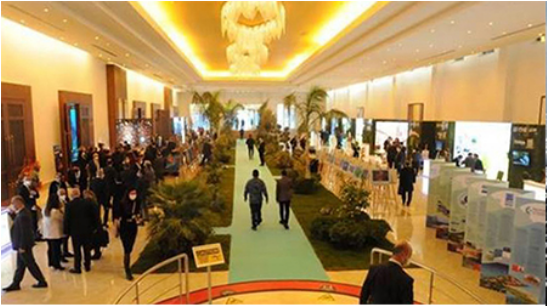
COP22: : vers un avenir durable, fondé sur l'éco-innovation et les modèles commerciaux durables
La COP22 vue par le SCP/RAC: nous avons créé un Twitter moment rassemblant tous les moments clés, que vous pouvez retrouver ici.
Lors de la COP22, une série de décisions prometteuses et encourageantes sur l'économie circulaire, portées par le ...
La COP22 vue par le SCP/RAC: nous avons créé un Twitter moment rassemblant tous les moments clés, que vous pouvez retrouver ici.
Lors de la COP22, une série de décisions prometteuses et encourageantes sur l'économie circulaire, portées par le SCP/RAC, ont été adoptées par les pays, contribuant aux efforts régionaux visant une relance verte en Méditerranée. Dans un premier temps, les pays ont adopté la définition même du terme «entreprise durable», reconnue par les pays comme un moteur clé de l'économie verte et bleue dans la région méditerranéenne. Alors que toutes les entreprises doivent s'adapter à leur contexte politique, social et économique et fonctionner dans le cadre de contraintes réglementaires et institutionnelles, les entreprises de l'économie verte et circulaire sont souvent confrontées à des défis supplémentaires tels que l'établissement d'un pied sûr sur le marché, la compétitivité avec d'autres entreprises qui n'internalisent pas le les coûts de la responsabilité environnementale et sociale, les possibilités limitées de renforcement des capacités en matière de pratiques commerciales durables et l'accès au financement. La définition, basée sur une première proposition faite par Burcu Tuncer et Giorgio Mosangini (Circular economy business strategies, 2020), est une étape importante dans le travail visant à promouvoir l'harmonisation des politiques et des approches entre les acteurs régionaux.
Avec le même objectif, les pays ont ensuite adopté un ensemble de 12 mesures de politique régionale présentées par SCP/RAC, pour soutenir les entreprises de l'économie verte et circulaire en Méditerranée. Cette mesure devrait accroître l'adoption de techniques d'éco-innovation par les entreprises, générer de nouveaux emplois verts et renforcer la demande de produits plus durables, agissant comme un tremplin pour consolider les efforts des pays vers une Méditerranée plus circulaire.
Toutes ces mesures viennent apporter un soutien supplémentaire et élémentaire aux Switchers, une communauté hébergée par SCP/RAC, de plus de 300 entrepreneurs et acteurs du changement menant la transition vers des économies vertes et socialement inclusives en Méditerranée. Porte-drapeau des Switchers lors de cette COP22, l'entrepreneure catalane Aina Pujol a fait passer un message aux participants: «Les jeunes de la Méditerranée ont la volonté commune de faire changer les choses, mais manquent de moyens». Elle a participé à la Session ministérielle en tant que représentante de la jeunesse aux côtés de S.E. M. Murat Kurum, ministre de l'Environnement, de l'Urbanisation et du Changement climatique de la République de Turquie et Mme Joyce Msuya, directrice exécutive adjointe du PNUE, qui ont félicité Aina Pujol et les deux autres jeunes représentant Faik Yetkin de Turquie et Asma Tarek d'Égypte sur leurs efforts pour le peuple et pour la planète» déclarant qu' ils sont des exemples brillants du pouvoir de la jeunesse pour aider à protéger la mer Méditerranée».
Entreprises durables & The Switchers : acteurs clés pour une relance verte en Méditerranée, présents à la COP22
La Switcher Aina Pujol, basée à Barcelone, a rejoint les autres jeunes Méditerranéens à Istanbul pour défendre la mer Méditerranée, partager leur histoire et proposer des solutions durables pour l'avenir de la région. Les résultats de cet événement ont été présentés lors de la session ministérielle de la COP22 (9 décembre), servant de contribution aux délibérations de haut niveau.
Aina Pujol a récemment rejoint la communauté des Switchers, créée par SCP/RAC, alors qu’elle a lancé sa propre initiative après un moment de réflexion sur notre façon de consommer la mode.
Autres temps forts de la COP22:
- Lignes directrices pour lutter contre les produits en plastique à usage unique dans la région méditerranéenne, une contribution majeure à l'ambition de la Convention de Barcelone sur la réduction des déchets marins: lancées lors de la COP22, elles ont été reconnues comme un outil majeur pour soutenir les Parties contractantes dans la mise en œuvre du plan régional amélioré sur la réduction des déchets marins. déchets, adopté lors de la COP22 de la Convention de Barcelone.
- #BeMedIsland Policy Brief: à l'occasion de la COP22 de la Convention de Barcelone, BeMed-Islands a publié une note d'orientation qui décrit des projets et des actions particuliers répondant aux engagements du plan régional amélioré sur les déchets marins, adopté le premier jour de la COP22. La communauté BeMed-Islands appelle les Parties contractantes à adopter, à intensifier les initiatives réussies et à soutenir davantage ses efforts vers une mer Méditerranée sans plastique.
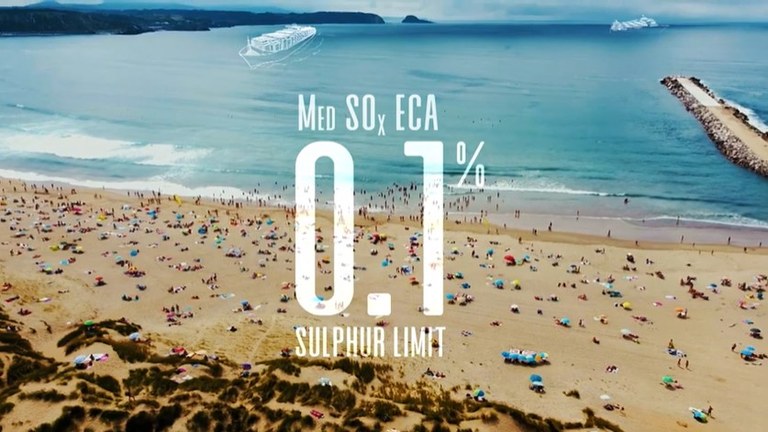
La COP 22 a obtenu un consensus sur la réduction des émissions d’oxydes de soufre des navires en Méditerranée
Les participants à la COP 22 ont adopté une décision novatrice sur la désignation de la mer Méditerranée dans son ensemble en tant que zone de contrôle des émissions d’oxydes de soufre (ECA SOX Med) en vertu de l’Annexe VI de la Convention ...
Les participants à la COP 22 ont adopté une décision novatrice sur la désignation de la mer Méditerranée dans son ensemble en tant que zone de contrôle des émissions d’oxydes de soufre (ECA SOX Med) en vertu de l’Annexe VI de la Convention internationale pour la prévention de la pollution par les navires (MARPOL).
Cette décision est l’aboutissement d’intenses consultations entre les Parties contractantes à la Convention de Barcelone qui ont été facilitées par le PNUE / PAM et deux de ses Centres d’activités régionales, à savoir le REMPEC et le Plan Bleu.
Elle a ouvert la voie à la soumission le 4 février 2022, par la France, qui assure actuellement la Présidence du Conseil de l’Union européenne, de la proposition conjointe et coordonnée visant à désigner l’ECA SOX Med, au nom de tous les États côtiers méditerranéens, avec tous les États membres de l’UE et la Commission européenne, pour examen lors de la 78e session du Comité de la protection du milieu marin de l’Organisation maritime internationale (OMI) (MEPC 78) (6-10 juin 2022).
Une fois désignée, l’ECA SOX Med devrait générer des avantages significatifs pour la santé humaine et pour l’intégrité des écosystèmes, qui souffrent tous deux des émissions nocives de SOX du secteur du transport maritime, l’un des piliers de l’économie bleue en Méditerranée.
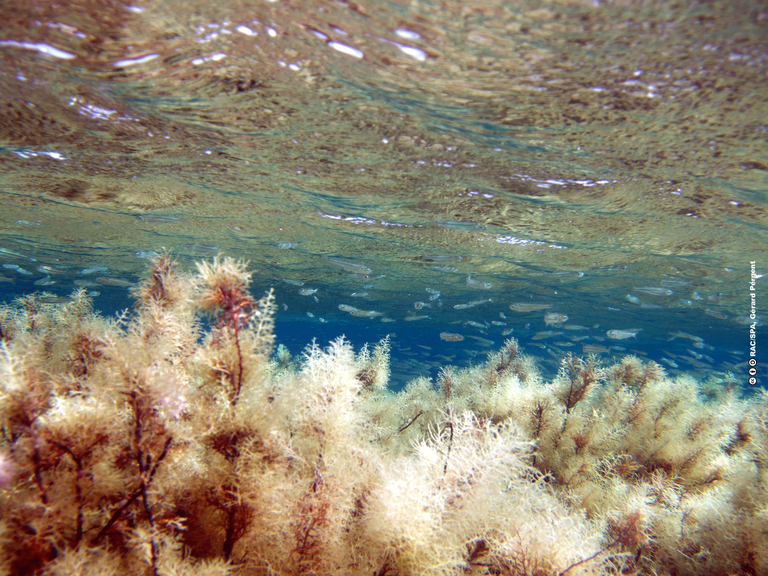
Focus on COP22 follow up
Lors de la COP 22, le rôle majeur du Protocole GIZC de la Convention de Barcelone en tant que jalon juridique pour l'intégration et la mise en œuvre d'approches, de pratiques et d'outils intégrés dans des initiatives conjointes et les actions ...
Lors de la COP 22, le rôle majeur du Protocole GIZC de la Convention de Barcelone en tant que jalon juridique pour l'intégration et la mise en œuvre d'approches, de pratiques et d'outils intégrés dans des initiatives conjointes et les actions coordonnées entre les secteurs et l'amélioration des mécanismes de gouvernance existants a été réaffirmé par la Déclaration d'Antalya.
Les Parties contractantes se sont engagées à s’impliquer dans un dialogue actif et à promouvoir des initiatives conjointes, en soutenant les réponses régionales aux défis environnementaux communs afin de renforcer leur impact à l'intérieur et à l'extérieur du bassin, et en contribuant à une action coordonnée entre les secteurs et les niveaux de gouvernement à travers la mise en œuvre des approches intégrées mentionnées dans le Protocole sur la gestion intégrée des zones côtières et le cadre conceptuel pour la planification de l’espace maritime.
Cette déclaration a réaffirmé l'importance de mettre en œuvre la planification de l'espace maritime dans toute la région méditerranéenne afin de mieux protéger les écosystèmes marins en répartissant stratégiquement l'utilisation des zones marines et en travaillant ensemble pour réduire les conflits et améliorer la gouvernance côtière (et marine).
L'exemple du projet GEF Adriatic présenté lors de l'un des événements parallèles les plus visités confirme que l'approche écosystémique est à juste titre le paradigme dominant pour la planification marine et côtière. Mais dans la réalité, la PEM doit faire face aux réalités politiques et institutionnelles, à des problèmes de participation complexes, à des compromis sectoriels et à des priorités de croissance bleue. Avec l'approche développée dans le cadre du projet GEF Adriatic, basée sur l’IMAP et testée au Monténégro, le CAR/PAP fournit un outil visuel, fondé sur des données scientifiques, qui fournit une base objectivement vérifiable pour les processus de prise de décision basés sur les priorités environnementales.
Tout cela prouve que les efforts du CAR/PAP dans la promotion d'une approche holistique de l'observation de l'intégrité des écosystèmes côtiers dans son aire de répartition terrestre et marine, telle que définie à l'Art. 3 du Protocole GIZC, fait passer l'accès à l’approche écosystémique en Méditerrannée à un niveau supérieur.
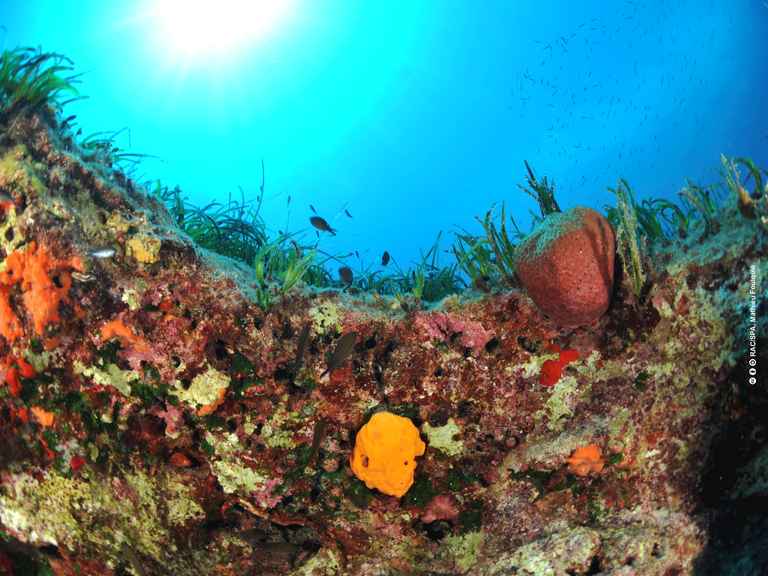
La COP 22 de la Convention de Barcelone adopte des mesures audacieuses pour la conservation de la biodiversité et l'utilisation durable des ressources naturelles en Méditerranée
Les Parties contractantes à la Convention sur la protection du milieu marin et du littoral de la Méditerranée (Convention de Barcelone) et à ses protocoles ont conclu leur 22ème réunion (COP 22, Antalya, Turquie, 7-10 décembre 2021) par un ensemble ...
Les Parties contractantes à la Convention sur la protection du milieu marin et du littoral de la Méditerranée (Convention de Barcelone) et à ses protocoles ont conclu leur 22ème réunion (COP 22, Antalya, Turquie, 7-10 décembre 2021) par un ensemble de décisions orientées vers l'action pour la conservation de la biodiversité.
"Il existe une multitude de solutions sur lesquelles on peut s'appuyer pour enrayer le déclin de la biodiversité. Mais pour que cela fonctionne, la volonté politique est la condition primordiale. Par l'adoption de décisions audacieuses et de la déclaration d'Antalya, les pays ont affirmé leur soutien à l'effort collectif dans le cadre du système de la Convention PNUE/PAM-Barcelone pour parvenir à une mer et une côte méditerranéennes saines dans le contexte du développement durable", Khalil Attia, directeur du SPA/RAC.
La COP 22 a notamment adopté le Programme d'actions stratégiques post-2020 pour la conservation de la biodiversité et la gestion durable des ressources naturelles dans la région méditerranéenne (Post-2020 SAPBIO). "Le Post-2020 SAPBIO est une réalisation importante pour les Parties contractantes à la Convention de Barcelone. Il constitue le plan directeur pour la conservation de la Méditerranée pour les 15 prochaines années", Daniel Cebrian, chargé du programme SAPBIO au SPA/RAC.
Le Post-2020 SAPBIO propose une vision à long terme pour 2050, adaptée du Cadre mondial pour la biodiversité qui doit être finalisé en 2022 dans le cadre de la CNUDB : " D’ici à 2050, la diversité biologique marine et côtière est valorisée, conservée, restaurée et utilisée avec sagesse, en assurant le maintien des services écosystémiques, en maintenant la mer Méditerranée et ses côtes en bonne santé et en procurant des avantages essentiels à la nature et aux populations ".
Développé par le SPA/RAC à la suite d'un processus régional entièrement participatif, le Post-2020 SAPBIO propose des activités adaptées à des objectifs et des cibles réalistes que les pays pourraient raisonnablement atteindre avec la coordination des organisations internationales concernées et le soutien des donateurs et des agences de financement.
Le Post-2020 SAPBIO est complété par d'autres mesures, également adoptées par la COP 22, qui devraient contribuer à la réalisation des objectifs de conservation dans la région.
Il s'agit notamment de la Stratégie régionale pour les aires marines et côtières protégées (AMCP) et les autres mesures de conservation efficaces par zone (AMCE) en Méditerranée pour l’après-2020 (stratégie AMCP et AMCE post-2020). "Il s'agit d'un document important qui permettrait à la Méditerranée d'atteindre les objectifs mondiaux de la CDB. Pour l'instant, nous sommes loin de la couverture de protection de 30% d'ici 2030. Nous sommes actuellement à 8,33% de couverture des aires marines protégées en 2020", Souha El Asmi, chargée de programme Aires Spécialement Protégées au SPA/RAC.
La stratégie AMCP et AMCE post-2020 définit des actions clés pour augmenter la couverture de protection, notamment par l'identification d’Autres mesures de conservation efficaces par zone (AMCE). Les actions proposées visent également à renforcer la gouvernance au sein des AMP, à améliorer l'efficacité de leur gestion et à fournir des indications sur la manière d'impliquer les gouvernements et les autres parties prenantes pour assurer le succès des AMP.
Une nouvelle initiative, adoptée par la COP 22, permettra de promouvoir davantage les AMP comme un outil important pour la conservation et la gestion de la biodiversité. À partir de 2022, la célébration de la Journée des Aires Spécialement Protégées d'Importance Méditerranéenne (SPAMI Day) aura lieu le 15 avril de chaque année.
En ce qui concerne la conservation des espèces et des habitats, la COP 22 a adopté deux plans d'action mis à jour pour la conservation des cétacés et des habitats obscurs sous le Protocole relatif aux aires spécialement protégées et à la diversité biologique en Méditerranée. Les mises à jour visent notamment à renforcer les efforts et actions régionaux et nationaux ainsi que la coordination et les synergies entre les acteurs de la conservation dans la région.
La COP 22 de cette année a marqué 45 ans de coopération régionale consacrée à l'environnement marin et côtier et au développement durable dans le cadre de la Convention de Barcelone. Plus de 400 participants des parties contractantes et des représentants d'agences des Nations unies, d'organisations intergouvernementales et non gouvernementales, d'institutions de recherche, de donateurs, du secteur privé et d'organisations de la société civile ont assisté à cette réunion de quatre jours. Un certain nombre d'événements parallèles ont eu lieu en marge de la COP et ont été l'occasion de partager les meilleures initiatives de conservation, dans un esprit de partage/échange et de collaboration.

RESET: un nouveau projet européen facilitant la création d'entreprises vertes et durables en Méditerranée est né
Le Centre d'activités régionales pour la consommation et la production durables (SCP/RAC) est le chef de file du projet et le partenaire principal, qui sera en charge de la diffusion régionale des apprentissages du projet.
Le SCP/RAC mène un ...
Le Centre d'activités régionales pour la consommation et la production durables (SCP/RAC) est le chef de file du projet et le partenaire principal, qui sera en charge de la diffusion régionale des apprentissages du projet.
Le SCP/RAC mène un nouveau projet européen pour soutenir la création d'entreprises vertes et durables en Méditerranée. RESET (RESults Enabling Transitions) est un projet financé par l'UE dans le cadre du programme IEV CTF MED et est géré par cinq partenaires situés dans différents pays du nord et du sud du bassin méditerranéen.
Outre SCP/RAC, d'autres partenaires participent au projet tels que Beyond (Liban), PIN S.c.r.l. Services éducatifs et scientifiques pour l'Université de Florence (Italie), Leaders Organization (Palestine) et INJAZ Tunisie (Tunisie). RESET compte également sept partenaires dans des pays comme l'Espagne et la Grèce, dont le PNUE/PAM ou la Fondation de l'Université Balmes. (Université de Vic).
RESET vise à faciliter le développement économique et social en soutenant la création d'entreprises durables et vertes. Le projet identifiera et analysera les pratiques les plus réussies qui peuvent être capitalisées et optimisées au niveau du projet, local, national et régional à travers la Méditerranée. Il rassemblera et synthétisera les apprentissages concernant « ce qui fonctionne » dans le domaine du soutien aux entreprises durables et vertes, et cherchera à remonter ces connaissances afin de soutenir la création d'entreprises vertes.
Le projet aura une durée de 24 mois (fin estimée le 12/02/2023), au cours de laquelle il cherchera à offrir un soutien aux entrepreneurs verts par le biais de formations dans les pays partenaires, en plus de promouvoir la création de politiques publiques avec une série de mesures régionales pour le développement des entreprises vertes et circulaires.
D'une part, le projet produira une carte des besoins/connaissances basée sur la recherche et un système de gestion de base de données innovant. À cet égard, il offrira un soutien et renforcera les capacités des parties prenantes des projets de l'UE par le biais d'une « clinique » de capitalisation, tant au niveau local que régional. En plus de cela, RESET proposera des formations en ligne et en face à face pour garantir que la capitalisation des pratiques réussies sur le terrain atteigne les entrepreneurs verts.
D'autre part, des documents stratégiques pour guider les stratégies de développement des entreprises vertes seront élaborés et une communauté virtuelle de pratique pour rassembler les parties prenantes concernées sera créée. Enfin, un prix de 54 000€ sera décerné pour mettre en valeur le travail et les parties prenantes de RESET et souligner l'importance de la capitalisation des projets de l'UE.
Ce projet est le résultat de nombreuses années d'expérience du SCP/RAC dans le soutien à l'éco-innovation des entrepreneurs et des PME. Le centre basé à Barcelone est à l'origine d'initiatives pionnières à travers lesquelles la fourniture de services de formation, de coaching et de conseil, le dialogue sur les politiques, la mise en réseau et l'accès au financement ont été fournis.
RESET est un projet financé par l'UE avec un budget total de 1 million d'euros, avec une contribution de l'UE de 900 000 €. Face à l'accélération de la crise de l'emploi et de l'environnement en Méditerranée, plusieurs appels à l'action sont lancés pour créer une économie durable et inclusive qui fonctionne pour tous. Alors que la région s'efforce de développer et de mettre en œuvre des mesures pour une transition verte durable, RESET vise à jouer un rôle clé pour faciliter le développement économique et social en soutenant la création d'entreprises durables et vertes.
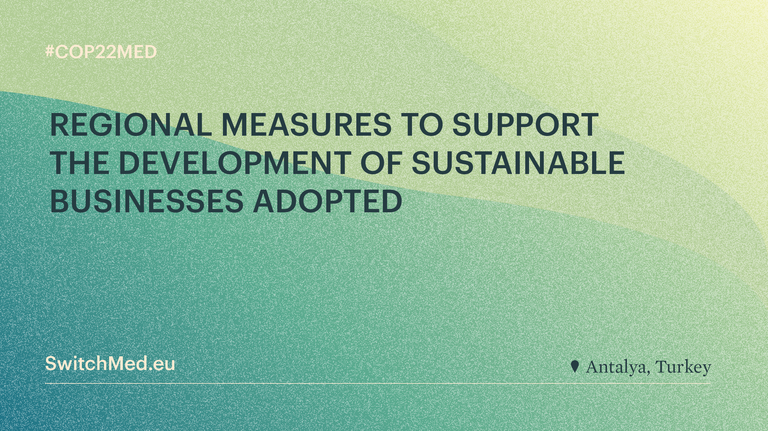
La publication sur l’ensemble des mesures politiques régionales visant à soutenir les entreprises vertes et circulaires en Méditerranée est maintenant disponible
Les mesures, adoptées par les pays méditerranéens au cours de la COP22 de la Convention de Barcelone, contribueront à la transition a une économie circulaire, verte et bleue dans la région.
L’ensemble des « Mesures régionales pour soutenir le ...
Les mesures, adoptées par les pays méditerranéens au cours de la COP22 de la Convention de Barcelone, contribueront à la transition a une économie circulaire, verte et bleue dans la région.
L’ensemble des « Mesures régionales pour soutenir le développement des entreprises vertes et circulaires et renforcer la demande de produits durables en Méditerranée » a été adopté par les parties contractantes à la Convention de Barcelone (soit les 22 pays qui bordent la mer Méditerranée) à travers la Décision IG 25/18 en décembre 2021, au cours de la COP22 à Antalya.
Les mesures régionales ont été rassemblées dans une publication qui a été mise à disposition pour que ceux qui en ont besoin puissent la consulter.
Cette Décision a été préparée suite à la requête des Parties Contractantes à la Convention de Barcelone inscrite dans la Décision IG. 24/13 de la COP21 et tout le travail préparatoire a été mené par SCP/RAC dans le cadre du programme SwitchMed.
Cet ensemble de mesures régionales contribuera à plusieurs objectifs stratégiques de la Stratégie méditerranéenne pour le développement durable et du Plan d’action régional sur la consommation et la production durable en Méditerranée (Plan d’action régional CPD), ainsi que la résolution nº1 de la 4ème session de l’Assemblée des Nations Unies pour l’environnement sur les «solutions innovantes et la consommation et la production durables» et nº4 sur «relever les défis environnementaux et instaurer des modes de consommation et de production durables» et la résolution de la 5ème Assemblée des Nations unies pour l’environnement (ANUE-5.2) sur «le renforcement de l’économie circulaire en tant que contribution à la réalisation d’une consommation et d’une production durables» (UNEP/EA.5/L.17).
Concernant le contexte de document, le travail technique nécessaire à la préparation d’un tel ensemble de mesures comprenait une analyse approfondie de la situation des entreprises vertes et circulaires aux niveaux national et sous-régional. L’analyse a conduit à la rédaction de recommandations politiques qui ont été regroupées en 12 mesures régionales, révisées par des experts nationaux nominés et les parties contractantes. Tout le travail préliminaire et les information spécifiques pour chaque pays et sous-région est disponible sur la page du site web de SwitchMed dédié aux Mesures Régionales.
Cet ensemble de mesures régionales est une réponse opportune à l’appel urgent à une «renaissance verte » et à mieux reconstruire tel qu’exprimé dans la stratégie de réponse au COVID-19 du PNUE.
SwitchMed s’est engagé à transformer les mots en actions et est déjà en train de mettre en place certaines des mesures présentées dans le document. La création du réseau d’organisations de soutien aux entreprises ACT est un exemple d’activité qui contribue à la Mesure B1 : « Un réseau méditerranéen de Réseaux d’Organisations de Soutien aux Entreprises ». Conscient du rôle que revêt la finance durable dans le soutien à la création des entreprises vertes, SwitchMed a également lancé un appel à action pour établir la Mesure Régionale F1 – «le premier Observatoire MED sur la finance durable», qui rassemble les investisseurs et experts régionaux autour d’une plateforme pour le dialogue, la recherche et la promotion de solutions d’investissement durable communes.
SwitchMed travaille également à la création du Switchers Policy Hub, qui se trouve dans la Mesure P1 : «Un pôle politique régional pour soutenir l’apprentissage par les pairs» et participera à la réalisation d’autres mesures en Méditerranée en soutenant les décideurs politiques qui travaillent pour favoriser l’économie circulaire, verte et bleue dans la région.
Enfin, SwitchMed organise un événement hybride et lancera une publication sur l’économie bleue qui vise à favoriser le développement de pratiques de l’économie circulaire dans des secteurs sélectionnés de l’économie bleue en Méditerranée, contribuant ainsi à la Mesure T2 : «Créer un cadre favorable aux entreprises durables et inclusives dans les secteurs relatifs à l’économie bleue».

SCP/RAC devient MedWaves, the UNEP/MAP Regional Activity Centre for SCP
L'année 2022 marque un tournant pour le SCP/RAC, le Centre d'activités régionales pour la consommation et la production durables, l'une des composantes du PNUE/PAM.
Le SCP/RAC change officiellement son nom en « MedWaves, the UNEP/MAP Regional ...
L'année 2022 marque un tournant pour le SCP/RAC, le Centre d'activités régionales pour la consommation et la production durables, l'une des composantes du PNUE/PAM.
Le SCP/RAC change officiellement son nom en « MedWaves, the UNEP/MAP Regional Activity Centre for SCP».
Après avoir été bien accueilli par les Parties contractantes à la Convention de Barcelone lors de la COP22 (Antalya, décembre 2021), au cours de laquelle le nouveau logo et le nouveau nom ont été officiellement dévoilés, MedWaves a vu son nouveau nom être lancé publiquement le 6 mai.
Le Centre, basé à Barcelone, a également publié son nouveau logo, représentant une vague, symbolisant la collaboration, l'union, le progrès et le changement. Une vague composée de formes circulaires représentant le croisement de deux chemins, se tournant vers une même direction.
MedWaves (anciennement SCP/RAC) poursuivra son bon travail en Méditerranée et continuera à offrir une expertise ciblée dans plusieurs domaines clés: économie circulaire, déchets marins et pollution plastique, produits chimiques toxiques et économie bleue durable. Les services de support vont du renforcement des capacités et de l'assistance technique à la fourniture de services consultatifs et de formation. Le centre transpose la connaissance contenue dans les notes d'orientations politiques et les plans d'actions en actions concrètes sur le terrain, en mettant en place des mesures et suivant les meilleures pratiques
Pour les entrepreneurs verts et les petites et moyennes entreprises (PME), MedWaves fournit un programme intégral de soutien aux entreprises, offrant du matériel de formation innovant, des services de plaidoyer, des opportunités commerciales et financières, des services de transfert de connaissances et de mise en réseau pour développer leur entreprise durable et créer des emplois verts.
MedWaves, Synergies Convergentes pour la Planète.
Visitez le nouveau site internet de MedWaves et suivez @MedWaves_Centre sur Twitter, Facebook et LinkedIn.
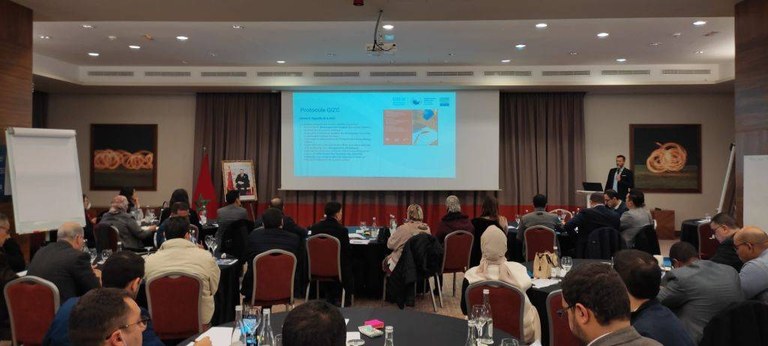
Le CAR/PAP en collaboration avec le Plan bleu lance le plan côtier pour Tanger-Tétouan-Al Hoceima au Maroc
Le 13 mars 2022, le CAR/PAP et le Plan Bleu ont organisé une rencontre pour la préparation du schéma régional du littoral (SRL) pour la région Tanger-Tétouan-Al Hoceima au Maroc. Il s'agissait d'une réunion de lancement et d'un atelier Climagine, ...
Le 13 mars 2022, le CAR/PAP et le Plan Bleu ont organisé une rencontre pour la préparation du schéma régional du littoral (SRL) pour la région Tanger-Tétouan-Al Hoceima au Maroc. Il s'agissait d'une réunion de lancement et d'un atelier Climagine, tenus à Tanger, au Maroc, organisés dans le cadre des sous projet 2.1 et SCCF du MedProgramme du FEM. L'atelier a réuni des représentants des gouvernements nationaux et régionaux et des institutions pertinentes. La préparation du plan sera réalisée à travers un ensemble d'ateliers participatifs (Climagine), renforçant la collaboration intersectorielle et interdisciplinaire. L'atelier a déterminé les sujets prioritaires que le SRL-Plan côtier couvrira et un accord sur les actions futures. L'élaboration d'un tel plan contribuera au développement durable de la région, mais représente également une étape importante dans la mise en œuvre du Protocole GIZC par le Maroc.
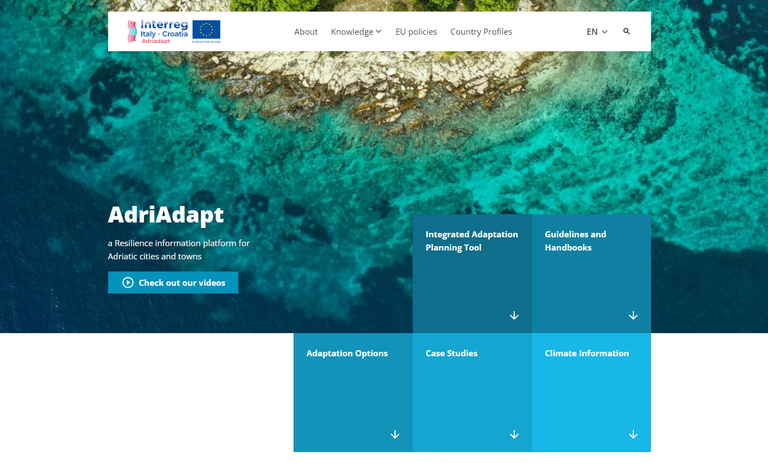
Le CAR/PAP a lancé la plateforme AdriAdapt sur l'adaptation au changement climatique
L'équipe du CAR/PAP est heureuse d'annoncer que la plateforme de connaissances AdriAdapt est prête à être utilisé.
La plate-forme a pour vocation d’inspirer toutes les villes et régions de l'Adriatique et leurs agences de développement à agir ...
L'équipe du CAR/PAP est heureuse d'annoncer que la plateforme de connaissances AdriAdapt est prête à être utilisé.
La plate-forme a pour vocation d’inspirer toutes les villes et régions de l'Adriatique et leurs agences de développement à agir pour le climat, mais comporte également des idées pour les secteurs gouvernementaux, commerciaux et universitaires.
La plateforme contient les éléments suivants :
• un outil intégré de planification de l'adaptation (guide étape par étape) ;
• plus de 40 options d'adaptation ;
• 11 études de cas ;
• des informations climatiques pour la région ;
• plusieurs lignes directrices, manuels et guides thématiques pour l'adaptation – du financement de l'adaptation à l'amélioration de la résilience côtière ; et
• plus de 50 vidéos différentes – des plus courtes (5 à 10 minutes) aux formations complètes et aux conférences tenues pendant le projet. Nous vous invitons particulièrement à visiter nos vidéos Editor's Picks !
Tous les documents sont disponibles en anglais, italien et croate. Bien que développée pour la région de l’Adriatique, la plate-forme a déjà été visitée par des utilisateurs de 130 pays ! Cela témoigne que les défis côtiers posés par le changement climatique sont similaires dans le monde entier !
Nous vous invitons à vous impliquer dans le renforcement de la résilience côtière grâce à l'action climatique. Utilisez cette plateforme pour agir!
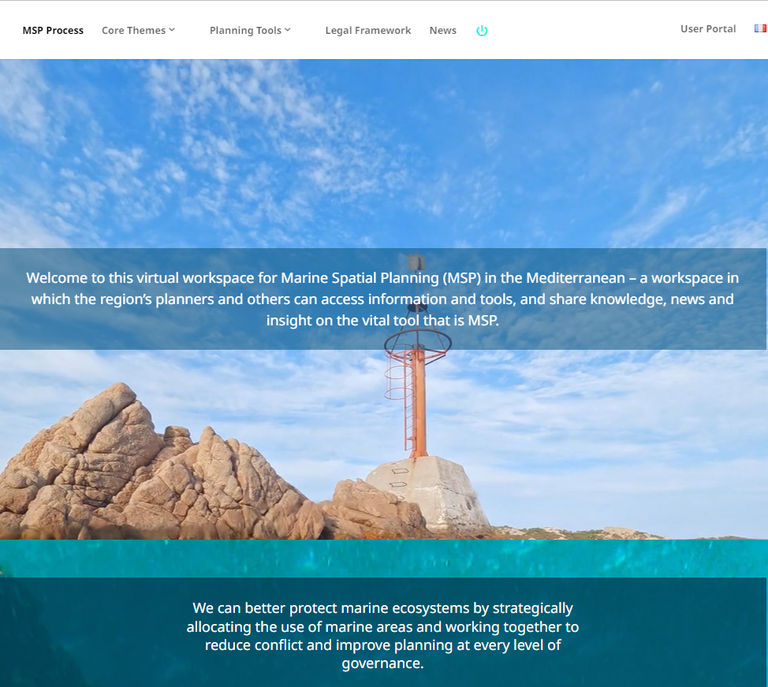
Planifiez intelligemment dès le départ avec le nouvel espace de travail de planification de l'espace maritime méditerranéen du CAR/PAP
L'espace de travail de planification de l'espace maritime méditerranéen (PEM) offre des conseils en matière de gouvernance et un accès facile aux derniers outils de planification suivant le processus de PEM en sept étapes. Il promet d'être un guide ...
L'espace de travail de planification de l'espace maritime méditerranéen (PEM) offre des conseils en matière de gouvernance et un accès facile aux derniers outils de planification suivant le processus de PEM en sept étapes. Il promet d'être un guide pratique en ligne évolutif pour préparer et fournir des plans qui intègrent des actions climatiques, une approche écosystémique et des interactions terre-mer.
L'espace de travail est coordonné et publié par le CAR/PAP. L'objectif est de donner aux planificateurs et aux décideurs un accès rapide aux dernières informations de PEM. Les outils peuvent être facilement adaptés à différents contextes nationaux et échelles géographiques, aidant ainsi les ministères ainsi que les autorités infranationales et locales à planifier efficacement. Les utilisateurs bénéficieront des conseils de bonnes pratiques et de l'utilisation d'outils d'évaluation simples pour répartir stratégiquement l'utilisation des zones de marina conformément au protocole GIZC.
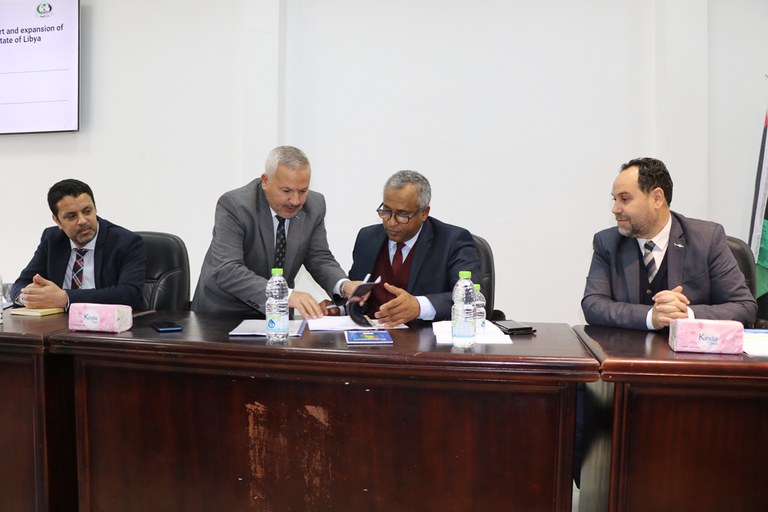
Lancement d'un nouveau projet pour soutenir la gestion et le développement des aires marines protégées en Libye
Le nouveau projet est mis en œuvre dans le cadre de l'initiative MedProgramme dirigée par le PNUE/PAM de la Convention de Barcelone et financée par le Fonds pour l'environnement mondial (FEM).
Le Centre d'activités régionales pour les aires ...
Le nouveau projet est mis en œuvre dans le cadre de l'initiative MedProgramme dirigée par le PNUE/PAM de la Convention de Barcelone et financée par le Fonds pour l'environnement mondial (FEM).
Le Centre d'activités régionales pour les aires spécialement protégées (UNEP/MAP-SPA/RAC), l'Union internationale pour la conservation de la nature (UICN) et le Fonds mondial pour la nature (WWF), en étroite collaboration avec le ministère libyen de l'environnement, ont organisé, le mercredi 16 février 2022, la réunion de lancement du projet "Soutien à la gestion et développement des aires marines protégées en Libye".
Le projet est mis en œuvre dans le cadre de l'initiative MedProgramme dirigée par la Convention de Barcelone PNUE/PAM et financée par le Fonds pour l'environnement mondial (FEM).
L'objectif général du projet est de remédier aux problèmes qui entravent la durabilité et l'efficacité du réseau d'AMP en Libye, notamment par la mise en place de mécanismes de soutien à la gestion dans trois AMP prioritaires (Ain El Ghezala, l'île de Gara et la lagune de Farwa).
Cela inclut : (i) l'évaluation des mécanismes juridiques et institutionnels des AMP ; (ii) la collecte et la centralisation des données sur la biodiversité et les écosystèmes marins ; et (iii) la communication et la sensibilisation sur les AMP et la biodiversité et les écosystèmes marins.
Le projet contribuera ensuite à amener les AMP en Libye vers une phase de fonctionnement autonome en renforçant les capacités des praticiens des AMP et en développant des plans de gestion pour 3 sites potentiels par le biais d'un processus de planification participative étape par étape afin de garantir la protection efficace des caractéristiques écologiques et socio-économiques de ces aires.
Le SPA/RAC dirigera en particulier la composante relative à l'amélioration de la gouvernance et du soutien à la gestion. Cette composante se basera sur la mise en œuvre de la stratégie nationale libyenne des aires marines protégées et sur la finalisation des consultations et de l'approbation de la loi nationale sur les aires protégées.
La réunion de lancement du projet a permis une riche discussion entre tous les représentants du gouvernement, de la recherche et des organisations de la société civile sur la mise en place d'un cadre commun en vue d'une définition claire des activités prévues, des meilleurs mécanismes pour leur mise en œuvre et pour l'implication active des communautés et des parties prenantes au niveau local.
La réunion a également permis à Son Excellence le Dr Ibrahim Al-Arabi Mounir, ministre libyen de l'environnement, d'approuver le plan d'action pour la conservation des tortues de mer en Libye et le plan d'action pour les espèces non indigènes en Libye, qui ont été préparés avec le soutien technique et financier du SPA/RAC.
Pour plus d'informations sur le projet, veuillez contacter Atef LIMAM Child project 3.1. Coordinator.

Lancement du classement de l’Aire Marine et Côtière de l’île de Rachgoun en Algérie
La Commission des Aires Protégées de la wilaya d'Ain Témouchent approuve la demande de classement de l’île et donne le feu vert pour poursuivre et finaliser le processus.
Le ministère de l’Environnement d'Algérie et l’UNEP/MAP-SPA/RAC collaborent ...
La Commission des Aires Protégées de la wilaya d'Ain Témouchent approuve la demande de classement de l’île et donne le feu vert pour poursuivre et finaliser le processus.
Le ministère de l’Environnement d'Algérie et l’UNEP/MAP-SPA/RAC collaborent pour la conservation du territoire terrestre et marin autour de Rachgoun (Ain Témouchent), à travers le classement de cette zone en Aire marine protégée (AMP).
Dans ce cadre, une « étude de pertinence» présentant les arguments du classement de cette zone a été élaborée et présentée le 24 mars 2022 à la Commission des Aires Protégées de la wilaya d'Ain Témouchent.
La réunion avec la commission a été organisée sous la direction du Secrétaire Général de la wilaya d'Ain Témouchent, en présence du Directeur de la Préservation, de la Conservation et de la Valorisation de la Biodiversité et des Ecosystèmes au ministère algérien de l’Environnement, du Directeur de l’Environnement de la wilaya d'Ain Témouchent et du bureau d’études ABYSS, chargé de la préparation du dossier de classement.
Suite à un exposé des arguments pour la protection de l’île, les membres de la commission ont approuvé à l’unanimité la demande de classement de la zone.
Le processus de protection de l’île de Rachgoun est mené selon une approche participative et inclusive, afin de garantir l’adhésion et l’appropriation du projet de conservation par toutes les parties prenantes.
Le site revêt en effet une grande importance socio-économique, en particulier pour la pêche locale. Les herbiers à Posidonia oceanica et les multiples anfractuosités qu’il abrite offrent un refuge à des espèces à forte valeur commerciale. L’aire nécessite d’être protégée en urgence, avec l’implication de tous les acteurs concernés, pour garantir son intégrité et assurer une exploitation durable de ses ressources.
La prochaine étape du processus consistera à élaborer (i) un schéma directeur de l’île Rachgoun, (ii) un plan de gestion et (iii) l’étude de classement à déposer auprès de la commission des Aires Protégées. A l’issue de cette phase, l’île sera officiellement déclarée aire marine et côtière protégée.
Pour rappel, le processus de classement s'inscrit dans le cadre de la collaboration entre le ministère de l’Environnement Algérien et le SPA/RAC, opérant sous l’égide du Plan d’Action pour la Méditerranée dans le cadre de la mise en œuvre de la Convention de Barcelone. La Direction de l’Environnement de la wilaya d'Ain Témouchent en sa qualité d’administration publique en charge de l’environnement dans cette wilaya a été désignée par le ministère de l’Environnement comme porteur du projet de classement.
Par ailleurs, le classement de l’île de Rachgoun est appuyé par deux projets régionaux à savoir (i) le projet régional « Vers le bon état écologique de la mer et des côtes méditerranéennes à travers un réseau d’aires marines protégées écologiquement représentatives et efficacement gérées et surveillées » (« Projet IMAP-MPA »), financé par l’Union européenne (UE) et (ii) le projet régional « Renforcer l’héritage : étendre les zones de non-prélèvement/aires marines protégées cogérées et financièrement viables » (Projet NTZ/MPA), financé par la Fondation MAVA pour la nature.
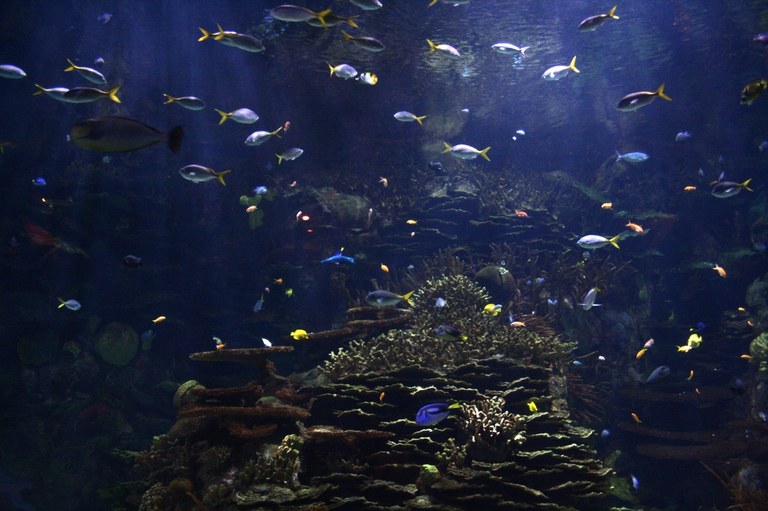
Highlights from the Mediterranean workshop at the One Ocean Summit TRADURRE
Several participants in the "Mediterranean 2030" workshop—which took place on 9 February 2022 in Brest, in the context of the One Ocean Summit—paid tribute to the UNEP/MAP-Barcelona Convention system’s role in facilitating multilateral action for ...
Several participants in the "Mediterranean 2030" workshop—which took place on 9 February 2022 in Brest, in the context of the One Ocean Summit—paid tribute to the UNEP/MAP-Barcelona Convention system’s role in facilitating multilateral action for healthy marine and coastal ecosystems and sustainable development in the Mediterranean region.
The opening session included high-level interventions by Bérangère Abba, Secretary of State for Biodiversity of France, Hugo Moran, Secretary of State for the Environment of Spain, and Vassilios Demetriades, Shipping Deputy Minister to the President of Cyprus.
The speakers unanimously applauded the landmark decision on the designation of the Mediterranean Sea, as a whole, as an Emission Control Area for Sulfur Oxides (Med Sox ECA), adopted at the 22nd Meeting of the Contracting Parties to the Barcelona Convention and its Protocols (COP 22 Antalya, Turkey, 7-10 December 2021). Mr. Demetriades called on the Contracting Parties to the Barcelona Convention to initiate work for the designation of a complementary Emission Control Area for Nitrogen Oxides.

SPAMI Day: une journée consacrée à la protection de la biodiversité en Méditerranée
SPAMI Day (15 avril), une journée officielle consacrée à la protection de la biodiversité marine et côtière en Méditerranée, est née. Athènes/Tunis, 14 avril 2022— Chaque année, le 15 avril, la région méditerranéenne célébrera une nouvelle journée ...
SPAMI Day (15 avril), une journée officielle consacrée à la protection de la biodiversité marine et côtière en Méditerranée, est née. Athènes/Tunis, 14 avril 2022— Chaque année, le 15 avril, la région méditerranéenne célébrera une nouvelle journée officielle consacrée aux Aires spécialement protégées d'importance Méditerranéenne .

Partenariat avec Fondation de la Mer: comment ce nouvel accord soutient les entreprises qui agissent en faveur de l’océan ?
L’accord vise à promouvoir et à déployer le Référentiel Océan et le Label Ocean Approved dans les pays du Sud de la Méditerranée dans le cadre du “Switchers Support Programme” coordonné par le SCP/RAC.
Les représentants de la Fondation de la Mer ...
L’accord vise à promouvoir et à déployer le Référentiel Océan et le Label Ocean Approved dans les pays du Sud de la Méditerranée dans le cadre du “Switchers Support Programme” coordonné par le SCP/RAC.
Les représentants de la Fondation de la Mer et les représentants du Centre d’Activités Régionales pour la Consommation et la Production Durables (SCP/RAC) ont signé en novembre 2021 un nouveau partenariat prometteur, dont les activités principales sont sur le point de démarrer.
A travers ce partenariat, les deux organisations souhaitent accroître l’impact de leurs actions respectives en lien avec l’océan et l’économie bleue, ainsi que leurs actions de soutien à l’entreprenariat vert et au développement de modèles d’entreprises durables dans le bassin méditerranéen.
La Fondation de la Mer a récemment développé le Référentiel Océan, appliqué aux entreprises pour leur permettre d’identifier, de mesurer et de réduire leur impact environmental ; ainsi qu’un label international, basé sur l’Objectif de Développement Durable Nº14 des Nations Unies, dédié à la préservation des océan et des mers : le « label Ocean Approved ».
Reconnaître, valoriser et soutenir les entreprises agissant en faveur de l’océan est au cœur de la mission du SCP/RAC, concrétisée par la mise en place de l’un de ses programmes principaux : « The Switchers Support Programme », qui soutient le développement des entreprises vertes et circulaires en Méditerranée au moyen d’une stratégie intégrée ciblant les entrepreneurs verts, les organisations de soutien aux entreprises, les acteurs financiers et les décideurs politiques.
Grâce à cet accord, SCP/RAC et Fondation de la Mer développeront une coopération mutuelle afin de promouvoir et de déployer le Référentiel Océan et le Label Ocean Approved dans les pays du Sud de la Méditerranée dans le cadre du “Switchers Support Programme”. Cela débutera notamment par l’accompagnement de deux entreprises pilotes appartenant à la communauté des Switchers. Ces dernières seront formées pour développer un plan d’action et d’analyse basé sur le référentiel Ocean et seront accompagnées dans le processus de labélisation s’ils répondent aux critères d’Ocean Approved.
Quant à SwitchMed, un entrepreneur vert du programme ayant finalisé son plan d’affaires vert sera aussi sélectionné dans un deuxième temps puis accompagné pour la définition d’un plan d’action et d’analyse basé sur le référentiel.
Suite à ces expériences pilotes, il est prévu d’étendre l’accompagnement de la Fondation de la Mer à un nombre plus large d’éco-entreprises issues de la communauté de Switchers. Le partenariat prévoit par ailleurs que la Fondation de la Mer participe aux prochaines formations à l’entrepreneuriat vert de la composante Économie Bleue du programme SwitchMed.
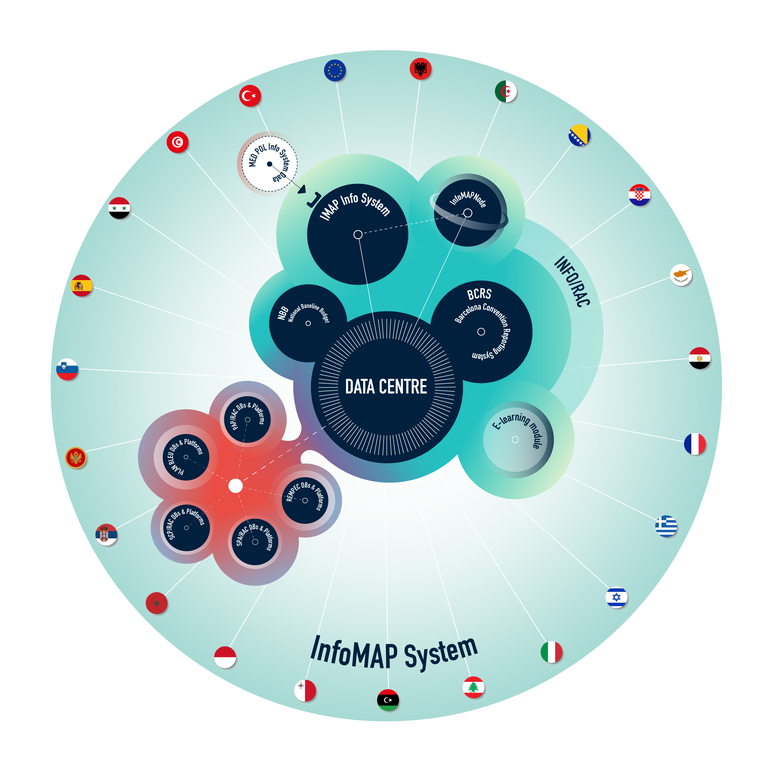
Vers la mise en œuvre de la politique des données du PAM en Méditerranée
Pour la première fois, la Convention de Barcelone a sa propre politique de données, élaborée par INFO/RAC et approuvée par les Parties contractantes fin 2021 (COP21 - Turquie).
C'est un succès de l'ensemble du système de la Convention MAP de ...
Pour la première fois, la Convention de Barcelone a sa propre politique de données, élaborée par INFO/RAC et approuvée par les Parties contractantes fin 2021 (COP21 - Turquie).
C'est un succès de l'ensemble du système de la Convention MAP de Barcelone, mais il reste encore quelques étapes à franchir .
Avec l'approbation de la politique générale des données du PAM en mer Méditerranée, il ouvre une nouvelle phase de négociations bilatérales avec l'INFO / RAC pour définir et ajuster les niveaux d'accès aux différents ensembles de données et flux de données.
Au cours de l'exercice biennal en cours, les Parties contractantes, l'UC du PAM, les CAR et les experts méditerranéens coopéreront avec l'INFO/RAC afin d'identifier les ensembles de données à partager en tant que public sans restrictions et ceux qui seront agrégés pour être utilisés pour la préparation de rapports sur la durabilité. et sur l'état de l'environnement marin-côtier.
Des réunions bilatérales avec les Parties contractantes permettront de comprendre les politiques nationales en matière de données, de définir un plan de transition numérique et des règles d'embargo sur les données pour mettre la plupart des données sous licence libre et d'identifier les règles de partage et d'utilisabilité des données qui ne peut pas être libéralisé. Par conséquent, une matrice de niveaux d'accès sera définie pour chaque catégorie de jeux de données identifiés, afin de classer les différents droits d'accès et d'utilisation des données aux différents niveaux d'utilisateurs (expert thématique, Point Focal Thématique, Point Focal du PAM, CAR, citoyens ).
Tous les autres éléments convenus feront partie d'une annexe élaborée pour chaque flux de données, y compris d'éventuels accords d'exclusivité et de protection des données pour mieux articuler les rôles et les responsabilités. Le document « Data Management policy », déjà approuvé lors de la COP21 sur les règles techniques de partage des données guidera la définition des formats de collecte et de stockage de certaines données.
En conclusion, le processus de mise en œuvre de la politique de données du PAM vient de commencer et dans les années à venir, chaque Partie contractante est invitée à adapter ses données aux politiques de partage en place et à mettre à disposition les ensembles de données dans le système InfoMAP géré par INFO/RAC afin pour le rendre efficace et créer un système d'aide à la décision à long terme pour la protection de l'environnement et du climat.
